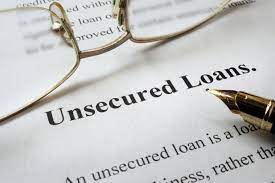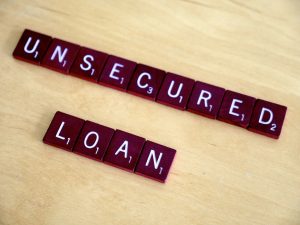Since Unsecured Personal Loans do not require collateral such as a car or a house, borrowers can obtain financing based on their credit rating and finances. You will also need to meet certain criteria for a personal lender.
What Are Unsecured Personal Loans?
An Unsecured Personal Loan is a type of Installment Loan that does not require any collateral in order for a funding application to be approved. Rather than approving a borrower’s application based on collateral, lenders approve unsecured loans based on the borrower’s creditworthiness. Thus, the better your credit, the more chance you will get a loan. Examples of unsecured loans are Personal Loan, Student Loan and others.
This type of financing is paid in regular monthly fixed installments over a fixed period of time. The repayment period is usually 2 to 7 years.
What Should I Know About An Unsecured Personal Loan?

- Unsecured Personal Loan does not require collateral, therefore the approval of the application depends on the creditworthiness of the borrower.
- Examples of unsecured loans are Credit Cards, Personal Loans, or Student Loans.
- Unsecured Loans have higher interest rates as they are more risky for the lender.
- Unsecured Personal Loans are repayable for 2 to 7 years.
- Unsecured Loans are safer for borrowers as the lender will not be able to collect their assets in case of non-payment of the debt.
How Does Unsecured Loan Work?
Unsecured Loans are approved without using the borrower’s property or other assets. Thus, the credit rating determines whether the borrower will be able to obtain an unsecured Personal Loan or not.
The loan works as follows: you have to fill out an application, wait for approval and receive money directly to your bank account. Let’s take a closer look at each step:
- Submit your application. Visit the site of the selected lender and fill out a simple and convenient online application, which will not take you more than 10 minutes. You will need to provide name, address, income, etc.
- Wait for approval. Typically, Unsecured Personal Loans are approved the same day you apply. The lender will contact you to discuss the terms of the loan and its repayment.
- Get paid. After you sign a loan agreement, the loan amount will be transferred to your bank account within one business day.
Important! Since Unsecured Loans require a higher credit rating than Secured Loans, some lenders allow borrowers to have a co-signer. A co-signer is a person who is obliged to pa the loan for the borrower if he is unable to pay the debt on his own. Since the co-signer provides the borrower with an additional guarantee that the debt will be paid off on time, the borrower can get a better loan offer.
What Can I Spend My Unsecured Personal Loan On?
Personal Loan is created so that the borrower can cover any personal needs. This way, you can spend money on home renovations, wedding expenses, major purchases, or any other expense.

How Do Borrowers Qualify For An Unsecured Loan?
In order to obtain an Unsecured Personal Loan it is recommended to have a good or excellent credit history in order to increase your chances of getting financing. You are also profitable to study the main eligibility criteria and make sure that you meet:
- Be a US citizen or official resident
- Be at least 18 years old
- Have a regular monthly source of income
- Have an active bank account
- Have a government issued ID
- Provide Social Security Number
- Provide phone and email
Is It Dangerous To Apply For An Unsecured Personal Loan?
Since this type of loan is not secured by collateral, it is more risky for the lender because it has higher interest rates. Therefore, it is important to make sure that you can cover the debt before applying.
Although the lender cannot take your property, he can take other steps to get your money back if you miss payments. For example, he can go to a collection agency or sue the borrower. If the lender wins the case in court, then the borrower’s salary will be withheld and a lien can be placed on the borrower’s home.

